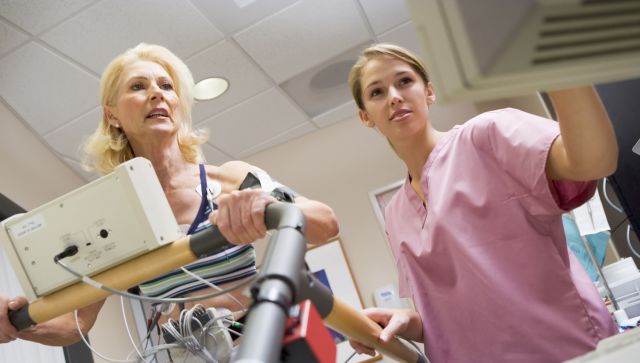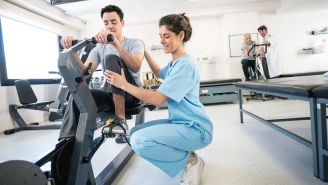The iconic symptom of a heart attack is crushing pressure, like an elephant sitting on your chest. Can you still have a heart attack if you don’t feel that pressure? Yes, you can. Some researchers now believe that about 45 percent of heart attacks are so-called silent heart attacks that have no symptoms or subtle symptoms, according to a May 2016 study of nearly 10,000 people published in the journal Circulation.
Just because you have no symptoms, or the symptoms are mild enough that you don’t notice or recognize them as heart-related, doesn’t mean your heart attack isn’t serious. “The presence of symptoms doesn’t translate into the extent or the severity of the heart attack,” says Navid Kazemi, MD, a cardiologist with MountainView Hospital in Las Vegas, Nevada. In fact, the study found that silent heart attacks increase the chance of dying from heart disease by three times and increase the chance of dying by all causes by 34 percent.
Read on to learn why you might not notice a heart attack, and how to tell if you’ve had one.
Heart attacks, explained
A heart attack, or myocardial infarction, happens when the blood supply to the heart is blocked. If oxygen-rich blood can’t get to the heart, the tissue begins to die. Coronary artery disease (CAD) is the most common cause of heart attacks.
The most common symptoms are chest pressure or pain, shortness of breath and pain in the upper body—either or both arms (often the left), back, neck, jaw or upper part of the stomach.
Some symptoms—often experienced by women—are less common or easily mistaken for something else. These include:
- Cold sweat
- Unusual fatigue
- Heartburn
- Nausea
- Light-headedness
Why some heart attacks have no symptoms
It’s hard to say whether silent heart attacks truly have no symptoms, or if people just don’t recognize the symptoms, says Dr. Kazemi. “If someone has diabetes, sometimes they have damage in the nerves that go from the heart to the brain so the brain doesn’t get that pain message,” he says. “Or they have very minor symptoms, like a vague sensation in the chest.” Kazemi adds that an otherwise healthy person may think they have heartburn, “but doctors find out through testing that they had a heart attack.”
While the Circulation study found that silent heart attacks are more common in men than women, they are more deadly in women. Kazemi says researchers suspect women are less likely to notice a heart attack either because they’re focused on taking care of others, or because they’re too busy to take note of any symptoms.
How can you tell?
If you’re having a heart attack, call 9-1-1, follow the operator’s directions, and wait for help to arrive. But if you don’t recognize a heart attack for what it is you’re not likely to seek medical attention—and then what? Kazemi says your doctors might not detect that you’ve had a heart attack for months. At that point “most of the damage has been done,” he says. “We help what’s left of the heart.”
Heart attacks that have gone unnoticed are often picked up during a yearly physical exam with an electrocardiogram (EKG), which records the heart’s electrical activity, says Kazemi. A doctor might also give you a stress test, which is an EKG while you’re walking or jogging on a treadmill or stationary bike. But people who are physically active usually have an easier time figuring out that they’ve had a heart attack without the help of a doctor.
“You’d notice a change in your stamina and strength and the way you exercise,” Kazemi says. “Someone who doesn’t exercise may not notice the difference, even if it’s a big one. That’s one of the reasons we encourage physical activity, so you can tell if something’s wrong.”





